President Donald Trump has unveiled a plan to impose “fair and reciprocal” tariffs on all countries, arguing that many nations charge significantly higher tariffs on U.S. imports than the U.S. does on theirs. However, rather than immediately imposing tariffs, Trump issued a memorandum on Thursday directing his nominees—Howard Lutnick for Commerce Secretary and Jamieson Greer for International Trade Representative—to draft a detailed tariff plan for each country within 180 days.
Tariff Plan and Exemptions
The new tariffs will be based on existing trade practices, including government subsidies for exports and manipulated exchange rates that give other countries competitive advantages. Trump’s directive allows time for negotiations with affected countries before finalizing the tariff plan.
Trump emphasized that the U.S. would impose tariffs equal to those charged by other nations. “In almost all cases, they’re charging us vastly more than we charge them, but those days are over,” he stated. “For fairness, we will charge a reciprocal tariff.”
House Speaker Mike Johnson suggested that the White House might introduce exemptions for certain industries, including automobiles and pharmaceuticals. A source close to the discussions revealed that Trump had mentioned considering four categories for exemptions in a recent White House meeting. However, Johnson clarified that no final decision had been made and advised waiting for an official announcement.
Impact on Global Trade and Manufacturing
Trump’s trade adviser, Peter Navarro, indicated that India, Japan, and the European Union (EU) could be among the key targets of the new tariffs. India had recently lowered tariffs on heavy motorcycles and some U.S. agricultural products, an issue Trump had previously criticized.
Trump also pointed out that the EU had recently reduced a key tariff to 2.5%, calling it a “big win” for the U.S. However, he warned that sending goods through a third country to avoid tariffs would not be accepted. Non-monetary trade barriers, such as regulatory tests on cars, would also be included in the new provisions.
The president reiterated his “Make in America” vision, urging companies to bring manufacturing back to the U.S. to avoid tariffs.
Trump Targets Value-Added Tax Systems and India’s High Tariffs
President Donald Trump stated that countries using a value-added tax (VAT) system might be considered as imposing tariffs on U.S. goods, suggesting they could face reciprocal duties. He also warned against attempts to bypass tariffs by rerouting goods through third countries, emphasizing that such tactics would not be tolerated. Additionally, Trump announced that non-monetary trade barriers, such as mandatory testing requirements for imported cars, would be factored into the new tariff measures.
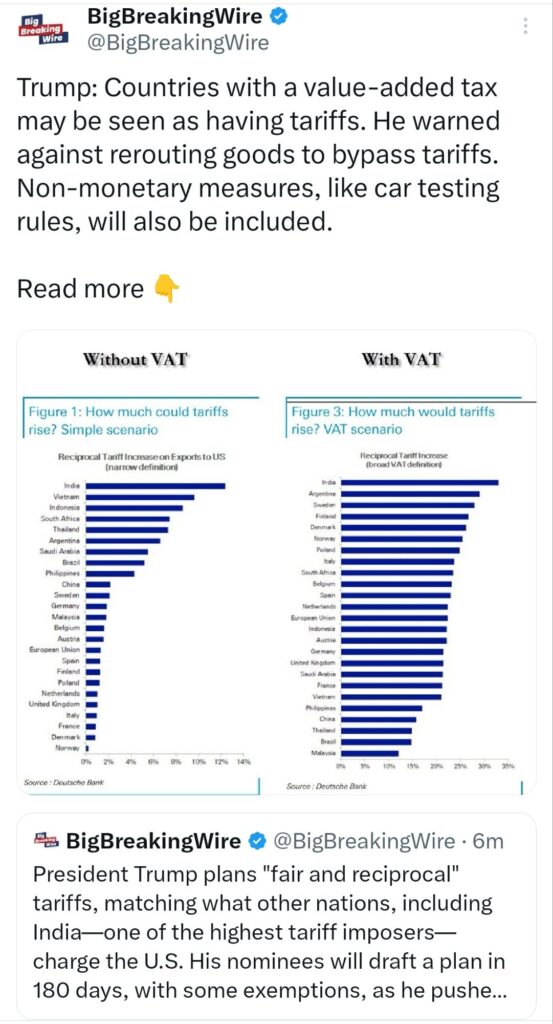
Trump singled out India, claiming it imposes some of the highest tariffs globally. He also noted that Tesla CEO Elon Musk recently met with Indian Prime Minister Narendra Modi, likely to discuss potential business ventures in the country. Despite speculation about possible trade exemptions, Trump clarified that most countries’ tariff rates would remain unchanged, with no special waivers or exceptions.
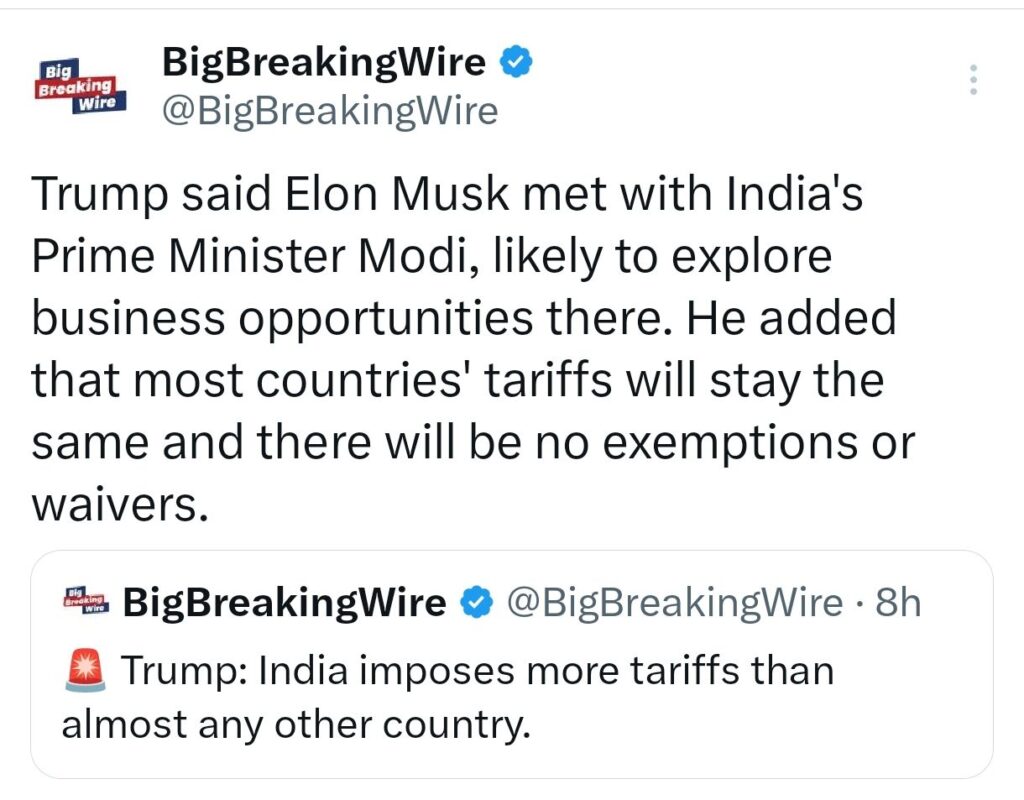
Addressing Fiscal Shortfalls
Trump is pushing these tariffs as a means to address budget shortfalls, particularly as he implements tax cuts. His nominee for the Office of Management and Budget, Russell Vought, has been tasked with assessing the fiscal impact of the proposed tariffs.
Currently, Trump has implemented only one major tariff increase: a 10% additional levy on Chinese imports. Other previously announced tariffs, including a 25% duty on steel and aluminum imports and similar levies on Canadian and Mexican goods, are set to take effect in early March.
Additionally, Trump has threatened further duties on industries such as automobiles, semiconductors, and pharmaceuticals, with details to be announced later.
U.S.-Taiwan Trade Tensions
During the announcement, Trump also took aim at Taiwan, stating that the country had taken semiconductor chip manufacturing away from the U.S. and that he wanted to bring that business back. This aligns with his broader push to rebuild American manufacturing and reduce reliance on foreign production.
US Tariff Response Could Hit Emerging Markets Hard
If the US imposes the same tariffs that other countries place on its goods, emerging markets like India, Argentina, Africa, and Southeast Asia would be hit hardest, according to Bloomberg Economics. The Trump administration views trade as unfair because the US imports more than it exports. Trump has also criticized value-added taxes (VAT) on US goods, such as the EU’s 15% VAT and Japan’s consumption tax. Many countries could be affected if the US takes a broader approach to trade fairness.
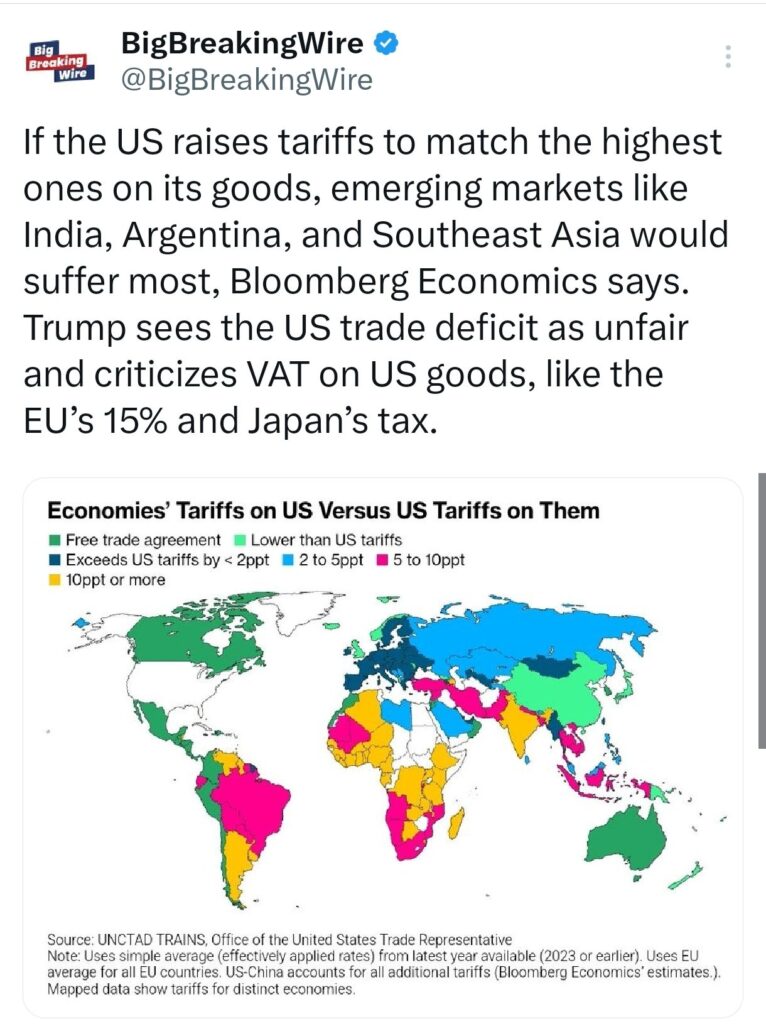
Conclusion
With the 180-day deadline in place, countries facing potential tariffs have time to negotiate. Trump’s approach, which includes possible exemptions for key industries, signals a more strategic and targeted tariff policy than his previous blanket tariff threats. However, concerns remain over the potential for a global trade war and the inflationary impact of increased tariffs.

BBW News Desk is the editorial team of BigBreakingWire, a digital newsroom focused on global finance, markets, geopolitics, trade policy, and macroeconomic developments.
Our editors monitor government decisions, central bank actions, international trade movements, corporate activity, and economic indicators to deliver fast, fact-based reporting for investors, professionals, and informed readers.
The BBW News Desk operates under the editorial standards of BigBreakingWire, prioritizing accuracy, verified information, and timely updates on major global developments.
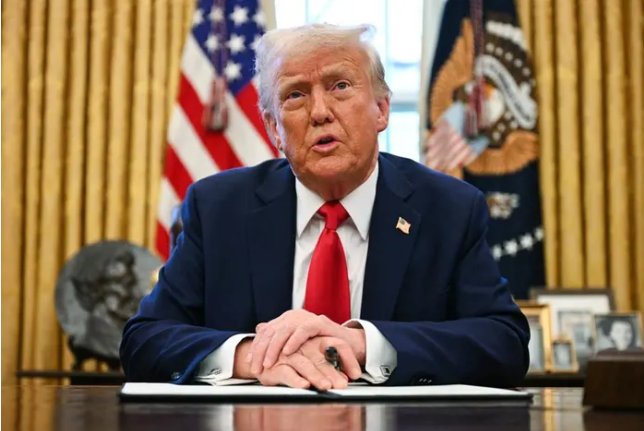








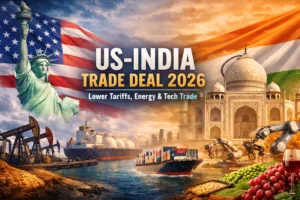
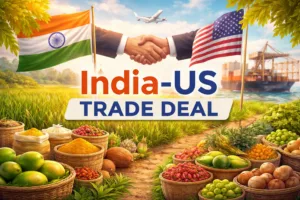


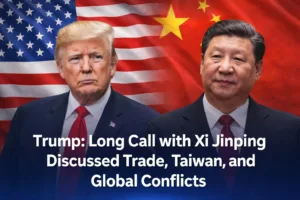



One Comment